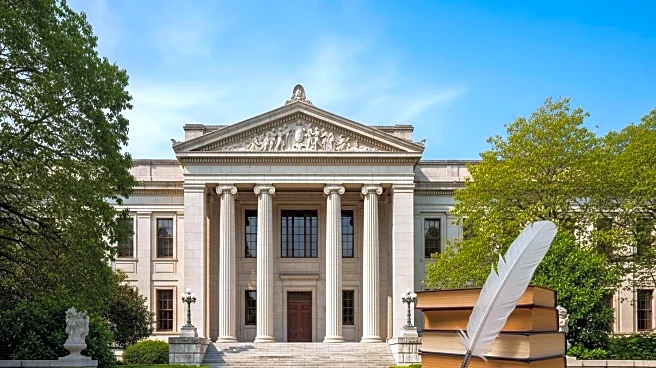What is the story about?
What's Happening?
Former President Joe Biden is encountering significant challenges in raising funds for his presidential library. Many of his previous major donors and bundlers have expressed reluctance to contribute, citing various reasons including dissatisfaction with past interactions with Biden's team and a desire to focus financial resources on future political campaigns. The fundraising effort, led by Rufus Gifford, aims to collect between $200 million and $300 million, a figure considerably lower than the cost of the Obama Presidential Library. Donors have also pointed to Biden's age and health issues as potential obstacles in garnering support for the library project.
Why It's Important?
The reluctance of Democratic donors to fund Biden's presidential library highlights broader challenges within the party. The hesitation reflects a strategic shift among donors who are prioritizing immediate political needs over legacy projects. This situation underscores the difficulties faced by the Democratic Party in mobilizing financial support following recent electoral setbacks. The outcome of this fundraising effort could influence how future presidential libraries are funded and the role of donor engagement in political legacy projects. Additionally, it raises questions about the sustainability of traditional fundraising models in a rapidly changing political landscape.
What's Next?
As the fundraising campaign progresses, Biden's team may need to reassess their approach to engaging with potential donors. This could involve addressing past grievances and demonstrating the value of the library in preserving Biden's legacy. The outcome of this effort may also prompt discussions within the Democratic Party about donor engagement strategies and the allocation of resources. The success or failure of this campaign could have implications for future presidential library projects and the broader political fundraising environment.
Beyond the Headlines
The challenges faced by Biden's library fundraising effort may reflect deeper issues within the Democratic Party, including donor fatigue and strategic disagreements. The reluctance to contribute could signal a shift in donor priorities towards more immediate political battles, potentially affecting the party's ability to fund long-term projects. This situation also raises ethical questions about the role of donor influence in shaping political legacies and the transparency of fundraising practices.

















